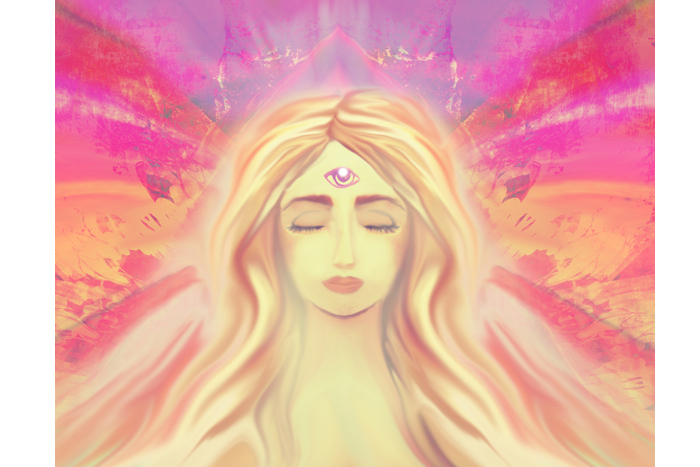Written by: Alexa Bailey, MSW, LMSW
You probably have heard the phrase “trust your gut”. People use it to describe the idea of intuition, of listening to the inherent signals your body gives you to know if something feels right or wrong. It’s the feeling of knowing without having to reason or debate. It’s instinctual and innate. But the idea of trusting your gut when anxiety is around becomes a daunting task, because what if you aren’t sure if it’s really intuition? What if the feeling that’s calling the shots isn’t backed by intuition but rather fear and worry and anxiety? Here’s a couple things to keep in mind to help you differentiate between these two experiences.
Calm vs. Chaos
When we feel the internal pull to do something and it comes backed by fear, this is a good indicator that we may be feeling anxiety instead of intuition. Intuition can sometimes cause anxiety, when the feeling we have is telling us to do something that goes against what we feel we should be doing, or if it contradicts those pesky perfectionist and people pleasing beliefs. This reaction to intuition doesn’t mean it’s wrong, it just means we have to understand what it’s pulling on. A gut reaction will come from a place of calm, whereas an anxiety reaction will often come with bodily and emotional reactions, the feelings of fear and unease showing up sometimes with a racing heart, racing thoughts, and difficulty calming down. Intuition will be more rooted in calm, without much emotion tied to it. Trusting intuition requires us to make the conscious choice to listen. Separating anxiety from intuition means getting to know your anxiety up close and personal, to help disconnect that gut level experience from the anxious one. Immediate actions that preserve a sense of safety but hurt you or don’t serve you in the long run point more toward anxiety. In these moments, it is a great time to use your grounding skills, take a break, take a breath, and quiet the nervous system response in order to tune into the quieter thoughts. When you can take a break and re-ground, you are in a better place to connect with your intuition and allow yourself to trust it.
Avoidance vs. Action
Perceived safety is usually on the underbelly of anxiety. Our bodies and brains work super hard to keep us in a state of equilibrium, or balance. Change or disruption of what we perceive to be the status quo for our lives can feel unsafe and overwhelming. Often, anxiety shows up through an avoidance of change, avoidance of stressors, and avoidance of discomfort. Anxiety tends to be very future focused and demanding of attention, attempting to find ways to stay the same. On the opposite end, intuition is calm but action oriented, it has direction and usually has solutions built in. This can feel threatening because listening to our intuition can feel like we are purposefully putting our self in a vulnerable and dangerous place. But vulnerability does not always equal danger. Being scared can mean that you are actually about to do something incredibly brave and healthy, and it can feel very overwhelming when we are used to keeping ourselves the same.
Reaction vs. Reality
Anxiety is a reaction to stimuli but is rarely rooted in reality. Our brain’s stress response is the way we scan for possible threats or danger, trying to find meaning in what we are experiencing by pulling from our own experiences, beliefs, and thoughts, usually in a negative way. This reaction is not a conscious choice but a knee-jerk reaction. Our intuitive feelings are attempting to root us back to reality, to bridge the internal gap of our conscious and unconscious mind and to guide us toward decisions and experiences that align with our values. Focusing on the internal wisdom and intuition of our gut allows us to be brought back to the present and challenge the anxiety that seeks to distort reality and take us into the past or future.
Get to Know Yourself
Understanding the nuances between anxiety and intuition is the first step in building internal trust with ourselves. We need to spend some time getting to know ourselves and our own reactions. Ask yourself questions and get curious with how you react to certain things. You can begin by seeking out what happens in your body when you get anxious, asking yourself what feels scary or fearful. Consider what works best for you to get grounded and what skills help you feel calm and soothe anxiety. As you begin to recognize your own patterns and needs, you step more fully into your circle of control and open your ability to listen and embrace your own intuition.
*************************************************************************************************************
Alexa Bailey is a Licensed Master of Social Work (LMSW), who works in private practice providing therapeutic services at Evolve Counseling. She has experience treating several different populations and areas, including trauma, anxiety, depression, relational challenges, and life transitions with both young adults/adolescents and adults. Alexa is a big advocate of self-care and creating whole personal wellness through positive change and healthy habits.

